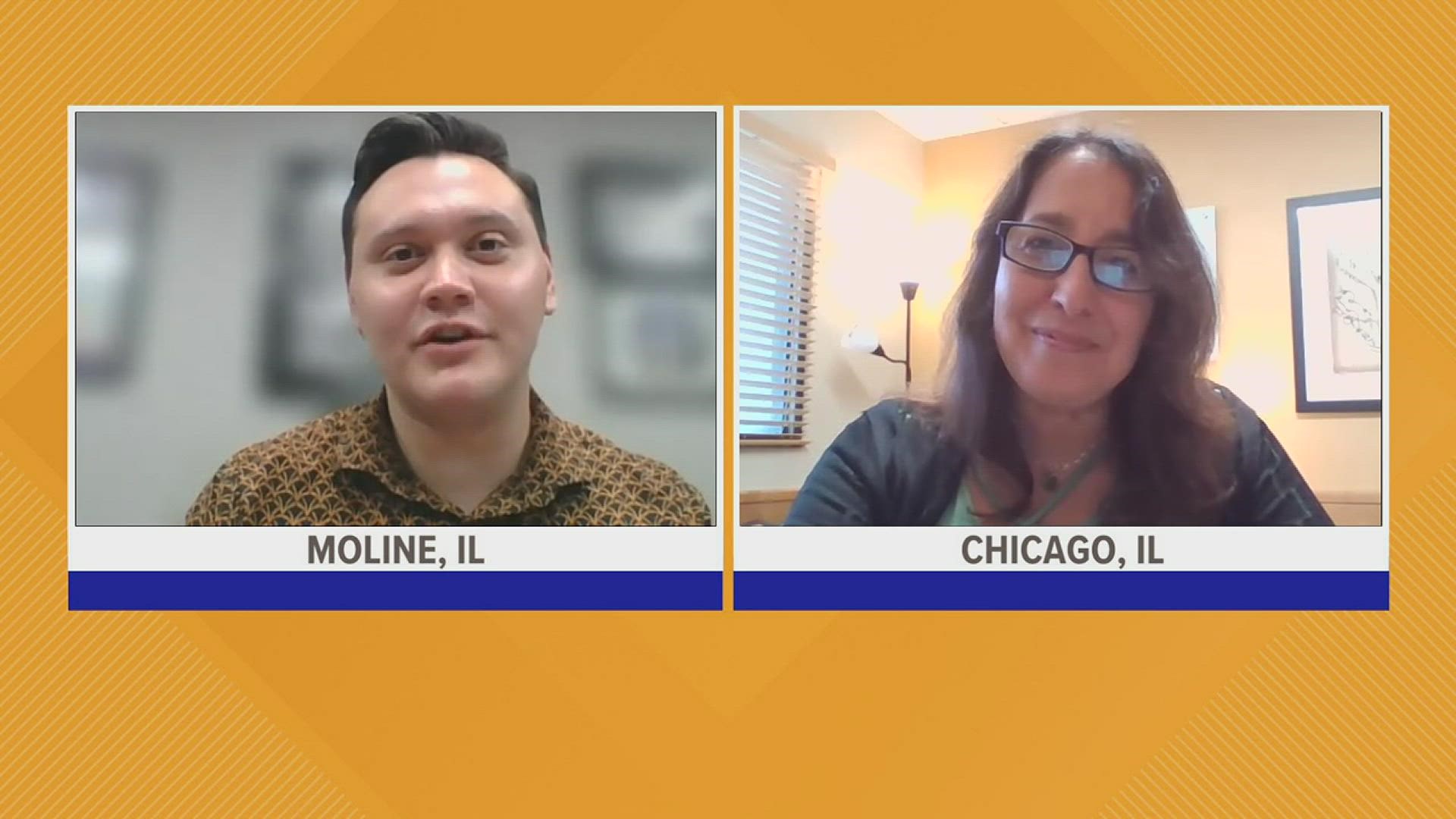MOLINE, Ill. — Our nation continues to rebound from the Coronavirus Pandemic. As things were moved virtual during 2020, it left many of us to manage the stress in isolation.
News 8's David Bohlman spoke with Doctor Ellen Astrachan-Fletcher, Regional Clinical Director at the Eating Recovery Center housed in Chicago, Illinois, about how some of us managed the stress with eating. These changed eating habits have changed the way we view ourselves, and is affecting our self confidence.
How did we get here?
The Pandemic. Social distancing, isolation, constant change, fear of the unkown. "All of these things during the pandemic really took its toll on people" Said Astrachan-Fletcher.
What does the data say?
In October, the American Psychological Association found that 61% of adults reported experiencing undesired weight change during the pandemic. This had many people turning to social media. "... all the posts and messages about weight gain, exercise, weight loss. All of these things during the pandemic / post pandemic had a negative impact on some people." Astrachan-Fletcher went on to say.
Astrachan-Fletcher says the pandemic has affected mental health and eating disorders. "the first two months of this year, we saw a 90% increase in new patient calls, compared to the previous year."
How do we combat this?
Astrachan-Fletcher said: The first thing is that we encourage acceptance, right? Acceptance that really involves self compassion, instead of judgment. It's recognizing, we've been through a ton in the past year and a half, and it has to take a toll in some way.
So we encourage people to learn about and start practicing body neutrality, especially when they say body positivity is just too difficult right now. Body neutrality is basically, you know, having enough respect for your body, just so that you don't harm it.
How to have the conversation with a loved one that it may be time to seek help.
When your thoughts or behaviors start to interrupt your life. If you start avoiding people or activities that you used to love. That's a pretty good indicator that it's probably time to seek professional help. Said Astrachan-Fletcher "...and really focusing on health for the whole person, especially because weight itself isn't an indicator of health."
How is a person treated?
Astrachan-Fletcher and her team at the Eating Recovery Center focus on where an individual is coming from. There is no one size fits all. "So we focus on better understanding where you're coming from, emotionally, understanding your patterns your behaviors, and what might be contributing to that." Said Astrachan-Fletcher, "At ERC Pathlight we use all types of disciplinary team, and every patient has that multidisciplinary team, so you're getting, you know, different viewpoints psychiatrist physician psychologists therapists dieticians, we're all here to help."
You can learn more about Dr. Ellen Astrachan-Fletcher and the work being done at the Eating Recovery Center by clicking here.

